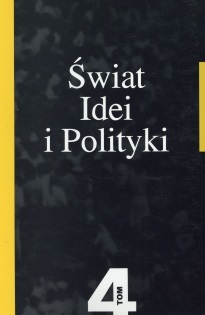Społeczeństwo europejskie - czy istnieje?
DOI:
https://doi.org/10.34767/SIIP.2004.04.06Abstrakt
Europe is a continent of many nations, cultures and traditions with rich, glorious, and at the same time tragic history. For centuries Europe has been building its autonomy despite being full of diversity. The European Union created on this groundwork is not uniform at all. In 2004, the EU was enlarged by 10 nations, which may loosen its bonds to some extent. However, the fact seems to stimulate to further co-operation, continuous improvement and searching for compromises, as well as to the development of dialogue forms within the Union and with the world. Since the decision to create a multi-cultural organization was taken over 50 years ago, the idea should be supported (not only in the field of economy), confronting the obstacles that may appear at every step. For a long time it has been observed that Europeans are very much alike despite coming from different countries. Although the states from the “Iron Curtain” have to go through a long way of political system transformation, they follow western patterns. The Europeans are guided by similar principles, their model of family and political systems evolve alike, and perhaps they perceive their future in a similar way. Europe is built by people and for people. At first the economic aim was the main impulse to set up the European Union. Due to economic growth, a lot of people could be secured better existence. Today it occurs that material prosperity is not the only important matter in life. The Europeans are becoming more and more alike. The process continues very slowly and takes place mainly on economic ground aiming at creating a common, safe and pluralistic society.

